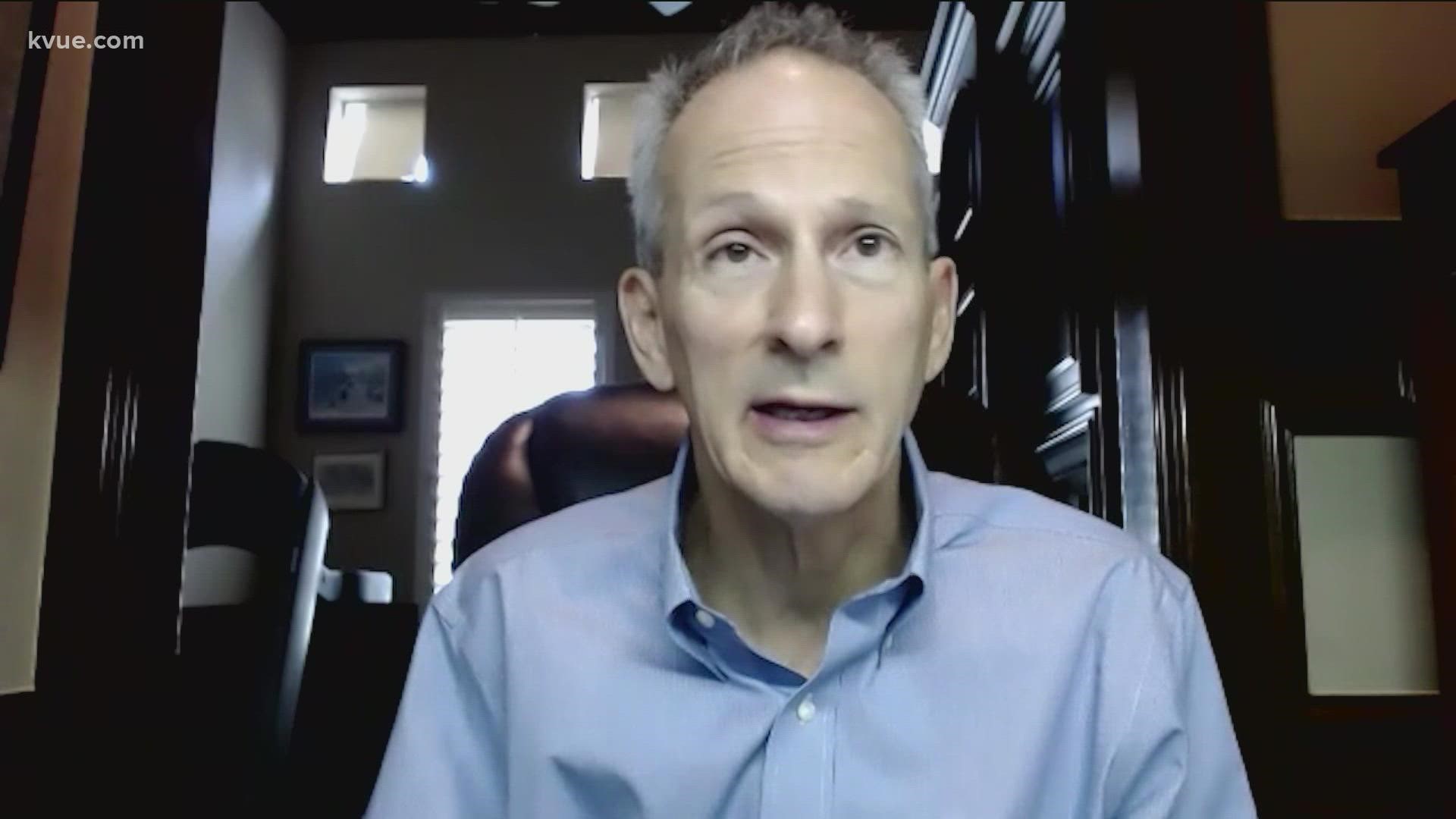AUSTIN, Texas — Children in Texas foster care remain in crisis as they are sleeping in unsafe placements that put them in harm's away, according to a new report released on Monday by federal monitors.
The report detailed circumstances in which 501 children spent at least one night in a non-licensed State-operated placement during the first half of this year.
In some circumstances, children spent more than 100 consecutive nights without a proper place to sleep, including caseworker's offices, hotels, churches and shelters.
Many of these children are those with high levels of need due to serious mental health needs or past trauma, but did not have appropriate access to mental and physical health services during these placements, according to the report.
A federal judge overseeing the State's overhaul of the "failing" foster care system followed up on the crisis during a hearing on Tuesday.
U.S. District Judge Janis Jack questioned leaders with the Department of Family Services (DFPS) and the Health and Human Services Commission (HHSC) on their progress providing safe placements for children.
"Ten years we have been on this case and still you don't know what children are where," said Jack.
Since the beginning of 2020, the State lost more than 1,600 beds, forcing officials to send some children out of state for care and away from some of their families.
Currently, 524 children are in homes or facilities out of state, including Kansas, Missouri, Arkansas, Colorado and Florida, a DFPS representative confirmed. A total of 107 of those children are at psychiatric residential treatment centers.
DFPS Commissioner Jaime Masters agreed during Tuesday's hearing that this problem needs to be addressed. Masters explained that sending children out of state for appropriate care is not a new practice, since those sites can provide appropriate care to high-needs children.
"It is concerning that we don't have those resources in state," Jack said.
Earlier this year, providers and DFPS officials blamed heightened monitoring for this capacity crisis and asked for less oversight over their programs and facilities.
When Masters was asked about this during Tuesday's hearing, she explained that her words were misinterpreted.
"What we have asked for is clarification about methodology," she said.
Jack denied her request for any more clarifications, explaining the State would continue to appeal these methodologies to the court, rather than fix the problem endangering children.
"Work with what you got," Jack told Masters.
Through heightened monitoring, the State revoked the license or terminated contracts with 23 operations due to "serious documented patterns of problems including physical and sexual abuse, improper supervision resulting in suicide attempts, drug use, fighting, running away and inappropriate sexual contact among the children." Five operations voluntarily closed rather than have their license revoked, and 16 operations with heightened monitoring closed rather than comply.
In some of these cases, DFPS made the decision to close some operations. Jack explained that the court never forced operations to close, rather fix the issues.
New to her role, Masters explained COVID-19 has not made it easy for her to expand placements since she became commissioner in December 2019. However, she has already had conversations with successful states to see how they have solved similar foster care issues.
"I am not saying I am incapable. I am saying it takes all of us," Masters said.
As commissioner of the department tasked with caring for the children, Jack said Master's needs to stop trying and just make change happen.
The added pressure of children without placements is also taking a toll on caseworkers, a problem nobody denied during the hearing.
In some instances, caseworkers are working past their eight-hour shifts to continue to monitor children without placement, flying out of state to check the conditions of those placements or getting assaulted by aggressive children, according to the report.
“Less oversight is the wrong answer and will risk children’s lives,” said Paul Yetter, the lead attorney representing the children.
Jack applauded the Texas legislature in their efforts to help to fund and come up with creative solutions to improve the Texas foster care system. She also asked Gov. Greg Abbott to continue his commitment to these changes.
"I know he is interested and I know he cares, so I would like a response," Jack said.
During the hearing, Masters called on the help of every entity involved, including HHSC and providers to solve this crisis.
Jack ended Tuesday's hearing early, to allow these groups to go into mediation with the monitors so everyone can work toward solutions.
"We're cautiously optimistic. The safety of these children is our top priority, and right now everyone agrees that they are in dangerous, harmful placements. The prospect of working together on a real solution, especially with the blessing of the governor, is the best path forward. I look forward to getting started as soon as possible," said Yetter.
PEOPLE ARE ALSO READING:

